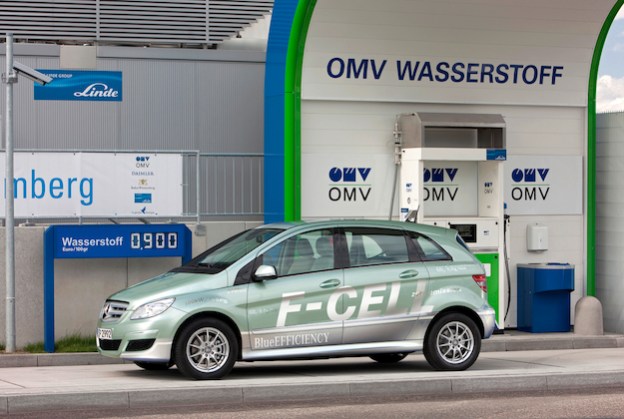
When the Obama administration came into office, it aimed to cut $100-million from hydrogen fuel-cell research funding that had been promised by the George W. Bush administration. After automakers complained, congress added additional funds.
Since then, the Obama administration has distanced itself from the alternative drivetrain technology.
Recently, however, the story has changed. The Energy Secretary, Steven Chu, even went so far as to call hydrogen fuel cells an “important technology” at the 2013 Washington D.C. Auto Show.
The DOE will soon launch a hydrogen-promoting campaign tentatively called H2USA, according to an Automotivenews report. The program will compile a list of automakers eager to see hydrogen fuel-cell vehicles on the open market in the near future.
Why has the administration flipped the script on hydrogen? Although the infrastructure is extremely weak, hydrogen-powered cars stand as the only technology capable of matching the convenience of gasoline. Just like gasoline, hydrogen offers a long range on a single tank (or “charge”) and quick refueling, along with the zero emissions benefits of all-electric vehicles.
As it stands, there are only 20 hydrogen fueling stations in the U.S. and if the technology is to get off the ground, that number will have to increase drastically in years to come. The California Department of Energy has pledged to build 68 fueling stations within the state by 2015. With only $28.6-million to spend on the plan, which is around half what the plan would actually cost to complete, it’s unlikely the state will hit its goal.
Hydrogen fuel-cell technology has also improved a great deal since W. Bush’s administration. Fuel-cell cars are now capable of driving 75,000 miles before the fuel cell needs to be replaced, which is double what the vehicles were capable of in 2004.
More hydrogen news is surely soon to follow. We recently reported that Hyundai produced the first production hydrogen fuel-cell electric car for the European market. With the likes of Infiniti, Mercedes, Toyota, and other automakers working on their own hydrogen cars, it won’t be long before we see more road-ready hydrogen vehicles.


